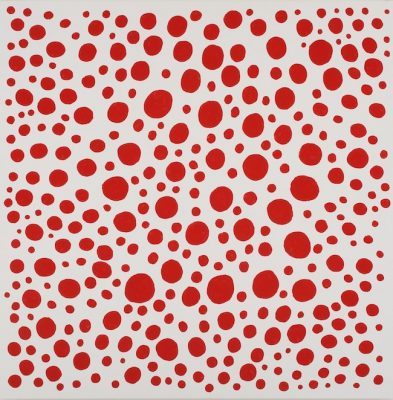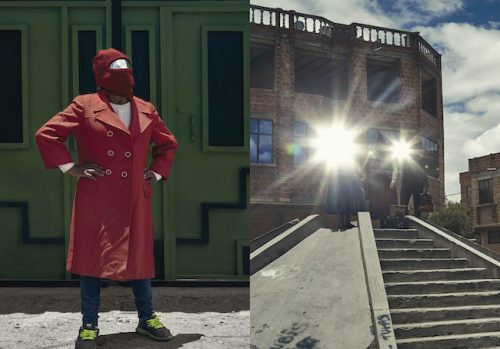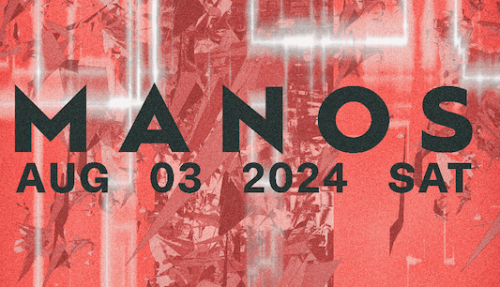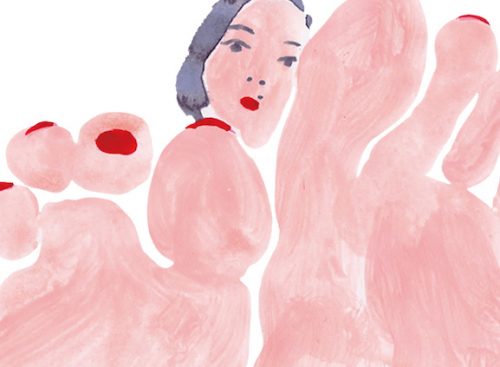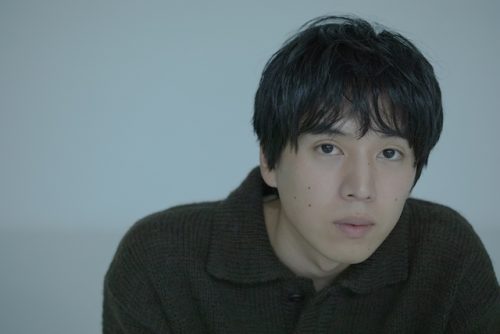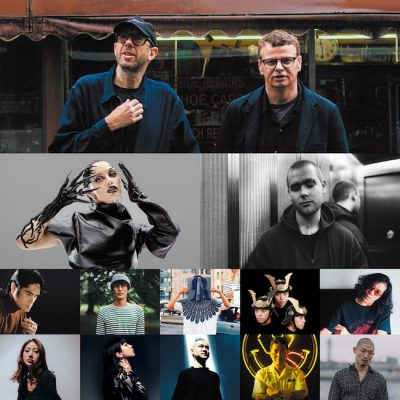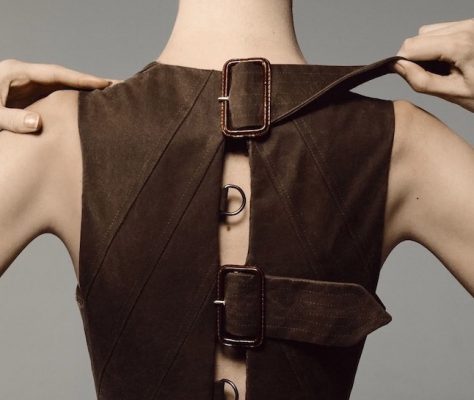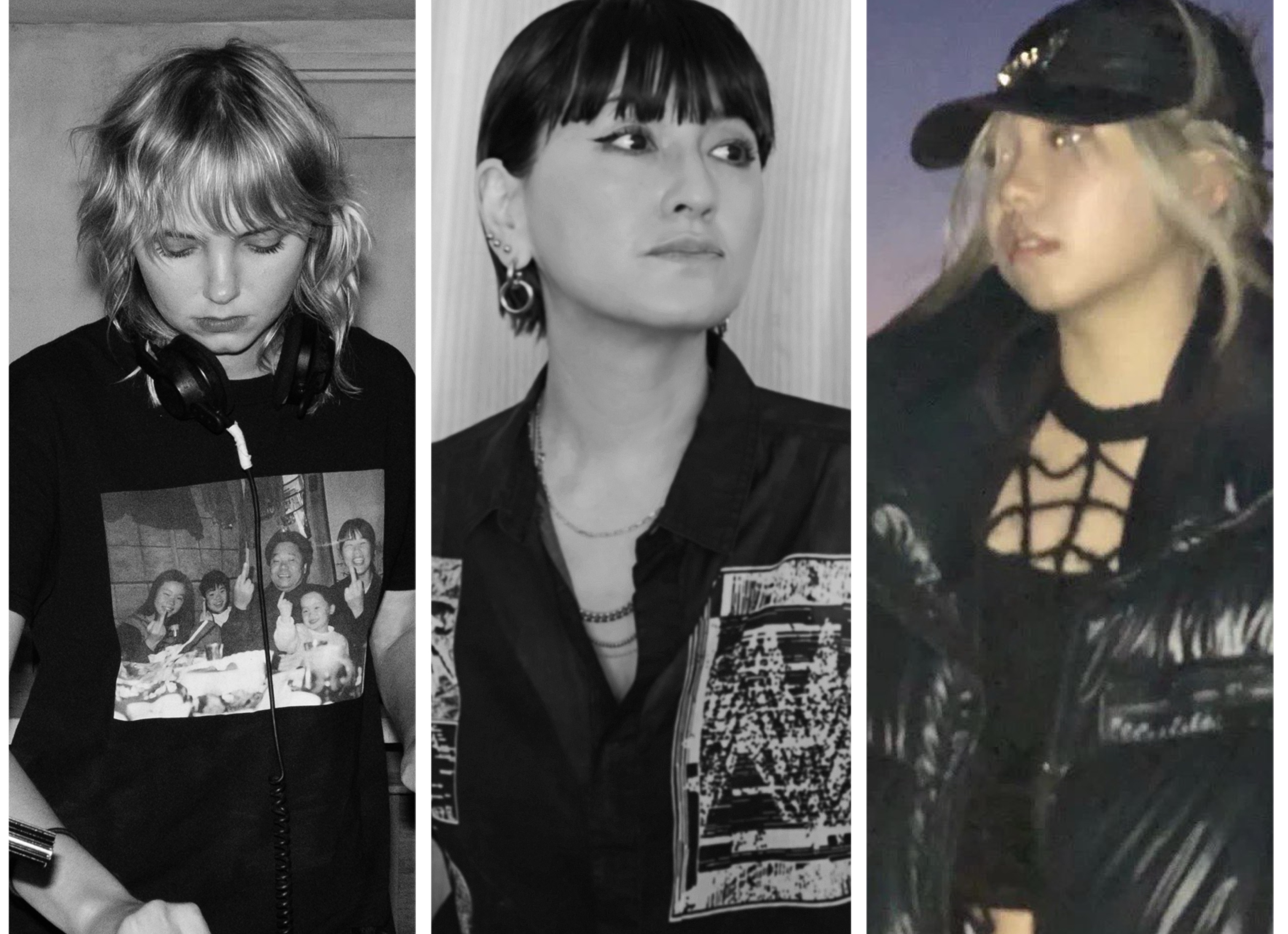
We spoke with three individuals who not only work as techno DJs but also as party organizers, asking them about the journey that led to hosting events, the essential elements needed to create safe spaces where women can enjoy themselves, and advice for aspiring DJs.
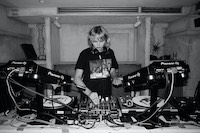
Kali Masha https://www.instagram.com/kali_masha/ from Kyiv, the organizer of the “Switch” party held in Tokyo and Warsaw.
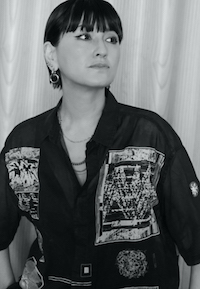
MAYUDEPTH https://www.instagram.com/mayudepth/ from Tokyo, the organizer of many events, including “MOTORPOOL” and “VITAL.” Apirl 11 “TACHYON “ Techno Party https://ja.ra.co/events/2122957

TEITEI https://www.instagram.com/teitei08056/ from Beijing, the organizer of the artist collective “Denki Bodhisattva,” which is supported by the new generation. The event “FLIGHT x Denki Bodhisattva Warehouse Rave” will be held on April 5-6. https://flight.zaiko.io/e/flgthbssrave
―What inspired you to start organizing events?
Kali:Music has always been a guiding force in my life, shaping how I process both the highs and lows. It’s the way music can move your mind, whether you’re feeling joy or sadness, that deeply inspired me. I wanted to share that experience with others. Then, I connected with the right people who shared the same passion. I also noticed that the Japanese scene felt a bit too uptight at the time—there wasn’t enough of a queer-friendly, open-minded community. So, we decided to create that space ourselves, which is how “Switch” (https://www.instagram.com/switch.party666/)was born.
MAYUDEPTH:I’ve been organizing events since I started DJing, but if I were to talk about this theme, it would probably be about the six years I spent with MOTORPOOL(https://www.instagram.com/motorpoolparty/). Before Contact Tokyo (a club in Shibuya, Tokyo, opened in 2016 and closed in 2022) opened, I was invited by DSKE(https://www.instagram.com/dskedj/) to collaborate on a party. At that time, we talked about creating a party that mixed the queer scene in Tokyo, which wasn’t very connected at the time, with the underground club culture where music lovers gathered. It was something that was common in overseas scenes, but Japan didn’t really have that kind of foundation. It’s similar to the motivation Kali mentioned.
TEITEI:Why were these two scenes separate in Japan?
MAYUDEPTH:Things have changed a lot now, but I feel like Japanese clubs often gather people from similar communities. For example, people who hang out in Shinjuku Ni-chome have a hard time fitting into the atmosphere of club events typically held in Shibuya, and vice versa. We were thinking about how we could change that. Both DSKE and I were active in both scenes, and we had many mutual friends, so we decided to try doing something together. At first, it was really difficult. There were people who weren’t used to the queer scene who said they found it hard to go to MOTORPOOL.
Kali: I get the same feedback about Switch.
MAYUDEPTH:Even so, we managed to gradually create an environment where we could mix these different communities over time. Thanks to the support of many people, we were finally able to bring together people from all genders and generations, and that situation really started to take shape around the third year.
―How did you improve the party?
MAYUDEPTH:At Contact, there were three different spaces on one floor, and we divided the atmosphere of each space. The main floor was a space where people could purely focus on the music. The lounge became a more free and glamorous space, with drag queens creating the atmosphere. Another space was turned into a relaxed house and disco room. By having various zones both musically and culturally, and making it possible to freely move between them, we were able to create spaces where everyone felt comfortable. This, in turn, made it naturally possible for these spaces to intersect. I think it was really important that different scenes could coexist on the same floor.
―How did TEITEI start your party?
TEITEI:I made my DJ debut at an event called “Ai no Techno Girls.” After DJing for the first time, I wanted to do it more. But when I came to Japan, no one knew me yet, and I had few friends. So, I decided to create my own event and started ” Denki Bodhisattva”(https://www.instagram.com/denki.bodhisattva/). At first, I held it at a place called SPACE on a Sunday for my birthday party. After that party ended, I set up DJ equipment on the second floor of the Chinese restaurant where I was working, and threw a party there as well. People were eating on the first floor while we were partying on the second floor. A lot of people came, and it became a hot topic.
MAYUDEPTH:The vibe of the party you had at the restaurant still remains now, doesn’t it?
TEITEI: Exactly! It’s that anything-goes vibe. People are eating, and everyone is just doing what they love.
MAYUDEPTH:When we go to TEITEI’s party, everyone is enjoying themselves in their own way. Some people are deeply immersed in the music, while others are enjoying delicious food. It has a bit of a festival vibe.
―Did you have a specific image in mind for the kind of party you wanted to organize?
TEITEI:Something interesting. I get bored really easily, and I end up getting tired of everything. Even at clubs, I can only stay in the same spot for about 10 minutes (laughs). So, I wanted to organize a party where I could have fun. Once, I even had a party with a pool. I bought a big inflatable pool online and set it up. And then, some of the girls who came actually showed up in bikinis!
Kali:Really!? I wish I was there, I would have gone!
TEITEI:The theme was “Gal.” I think the reason the girls felt safe because I’m a girl, and that’s probably why they showed up in bikinis. Even though there wasn’t any water in the pool! I really appreciate it!
MAYUDEPTH:Sounds great! You’re right, Denki Bodhisattva gives a sense of safety knowing that TEITEI is there as the organizer. Just having a female organizer makes a huge difference in terms of safety, doesn’t it?
TEITEI:Yes. It seems that the women can really come with a sense of easy. I’m happy about that.
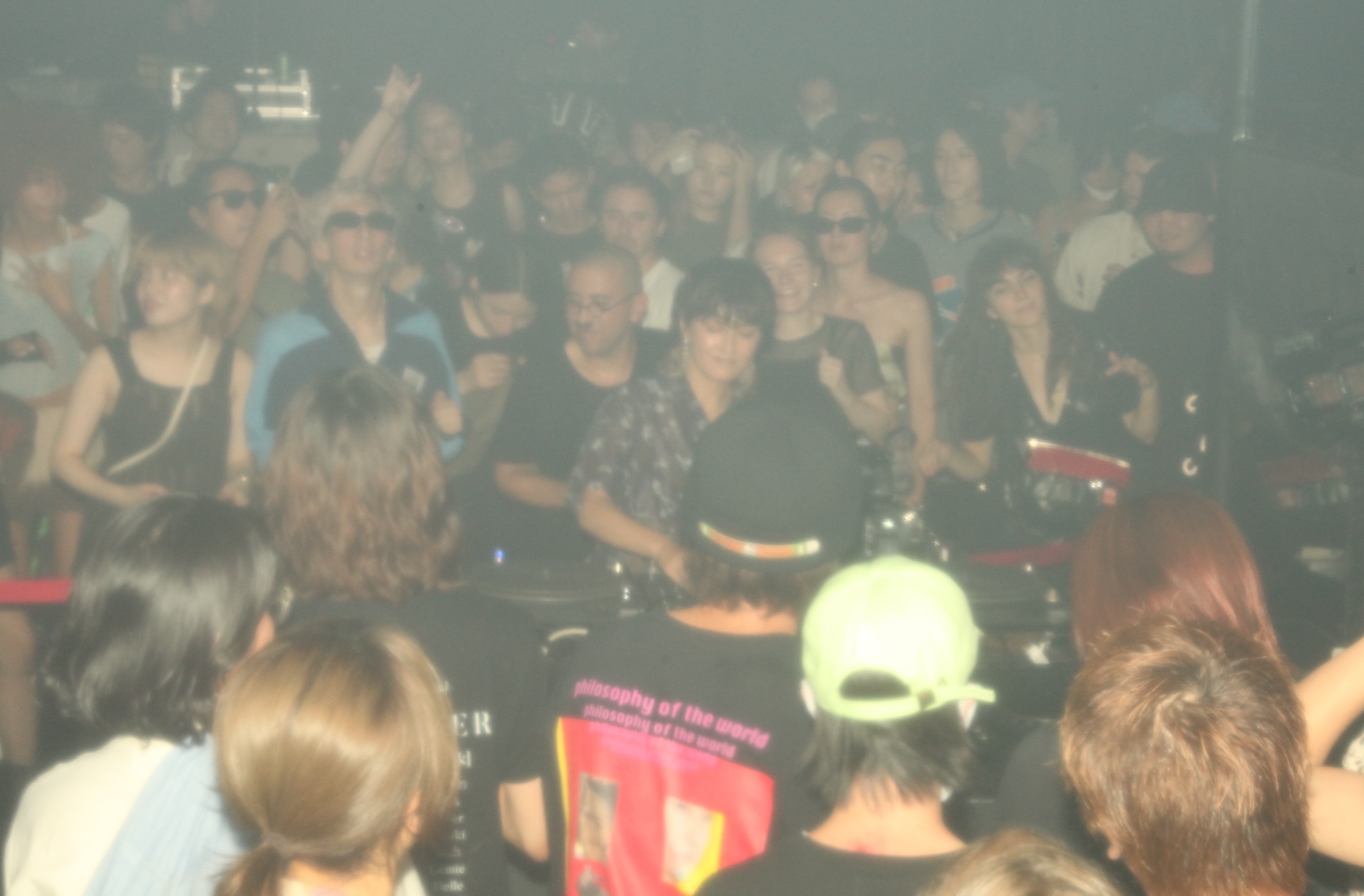
MOTORPOOL
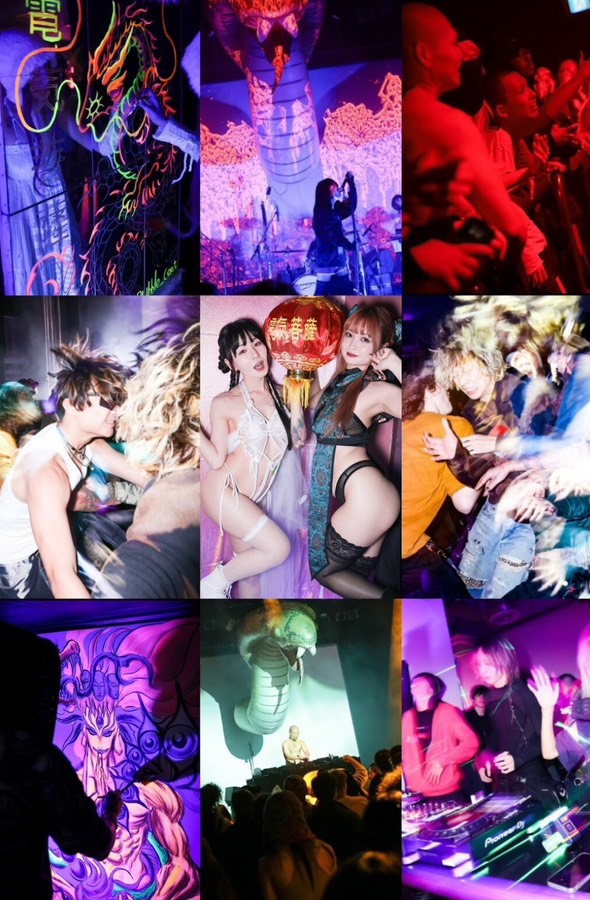
Denki Bodhisattva
―As an organizer, what do you think is necessary to create an environment where women can have fun?
Kali:First and foremost, safety is key. Club staff must be always vigilant, responsive, and responsible. From my perspective, I would’ve liked to see more support for female DJs from senior male DJs in Tokyo, especially when it comes to harassment. I’m not saying there isn’t any support, but I believe there’s room for improvement. I’ve also witnessed firsthand how sexual harassment has been ignored, and I truly believe we can do better.
However, I do see that younger organizers in smaller venues are doing a much better job of supporting female, queer, and emerging artists. Over the past couple of years, there’s been more inclusion in these spaces, while larger events seem to repeatedly book the same DJs and organizers—many of whom are male. There’s definitely a need for more diversity at the top levels. However, I do see that younger organizers in smaller venues are doing a much better job of supporting female, queer, and emerging artists. Over the past couple of years, there has been more inclusion in these spaces, while larger events seem to repeatedly book the same DJs and organizers—many of whom are male. There is definitely a need for more diversity at the top levels.
I remember playing at one party where there were some international artists, and it was a great event. At one point, I looked around and realized that I was the only female DJ. I went to the artist dinner, and sometimes I was the only woman there, but I didn’t mind because I don’t care about that. However, sometimes it feels a bit isolating. I want to play together with more women in larger spaces, and I want there to be people who truly understand each other. That’s why I want more appropriate support.
MAYUDEPTH:In Tokyo, it’s still common to see techno parties where most of the organizers, the lineup, and the crowd are predominantly cis men. But Switch and TEITEI’s parties often feature women as the main focus, and the overall balance feels really good. Many of the attendees come as groups of women, and when I went for the first time, I felt a lot of hope. I think the fact that clubs bring together people from various cultures is what makes them wonderful, so Denki Bodhisattva is really interesting and something I love because it manages to make that happen.
TEITEI:But now, I’m struggling because I can’t come up with any ideas.
MAYUDEPTH:I’ve had times like that too. When I couldn’t expand on my ideas or when attendance dropped, and all of that happened at once. But there’s no need to rush into the next thing. During those times, it’s important to reflect, figure out what needs improvement, and by doing that, you can take the next step forward.
Kali:Before this interview, just talking a little bit helped us come up with ideas and discuss them. Don’t worry, the ideas are already within TEITEI, and everything will be fine.
I’m also in a difficult situation. DJ MATRIX3K(https://www.instagram.com/matrix3k/), who is a partner at Switch, returned to Poland. At my parties, I always ask someone to check the floor, and I make sure to walk around as well, to prevent harassment. To enhance safety through monitoring, I need trustworthy partners and a reliable team, and without those partners right now, a heavy responsibility falls on me. Does TEITEI have people you can trust for that?
TEITEI:I have trustworthy people who help me a lot. By the way, in the beginning of Denki Bodhisattva, even though I was the one organizing everything, people said that I was relying on my best friend’s boyfriend because we had a relationship. Despite working hard on my own, terrible rumors were spread about me.
MAYUDEPTH:There are people who only see things through prejudice.
Kali:That’s so true. It’s exhausting.
MAYUDEPTH:I do what Kali said about keeping an eye on the floor to make sure there are no harassments too. I pay special attention to women who come alone and step in if they’re being bothered. TEITEI also walks around a lot to keep an eye on things, right?
TEITEI:Yeah.
MAYUDEPTH:I think having the organizers visible, like that, acts as a deterrent to harassment. I remember when I went to Tresor(https://tresorberlin.com/) in Berlin with two of my female friends, the female organizer at the entrance said, ‘If anything unpleasant happens inside, let us know.’ That one sentence made everyone feel at ease, and I wanted to take inspiration from that. I can’t speak to everyone, but I think it’s important to reassure women that there are female organizers present and looking out for them.
Kali:Personally, I’ve experienced harassment and assault in the Japanese techno scene, and at the time, there wasn’t much sympathy or support. I went to the club and a famous DJ had attacked me. Club staff were there, and they drag him away from me, but nobody called the police, because he was an organizer and a very well-known male DJ. Additionally, the other DJs at the party—90% of whom were male—knew exactly what had happened to me. Yet, nobody reached out with a message like, ‘Kali, what happened? Are you okay?’ I had to leave on my own, and that felt incredibly unfair. Last year, I cried a lot because no one protected me.
Afterward, he apologized to me multiple times, so I didn’t report the incident or post about it. I told him to improve and I think he’s trying to get better now. But I still think about it because it was a big trauma for me.
“I don’t want anyone else to be hurt like I was. That’s the most important thing.
MAYUDEPTH:What happened to Kali, and the fact that the people involved there took no proper action against the issue, is really sad.
Kali:I’ve had those experiences, and it’s very difficult for me to answer the question of what elements allow women to enjoy themselves safely. I really want to know how to protect women.
I want to say only positive thing of course, but I think it’s important to tell what really happened. I don’t see anyone talking about it, but I can speak about the real DJ scene. I can also give valuable advice on how to play, how to research music, and all of the technical aspects. You can learn things on your own through YouTube, it’s easy. But what you can’t learn is empathy, compassion, and trust. That’s something you need to understand when organizing a night party. Especially when people are drunk and not sober, you must be responsible for others. It’s a very tough job, a very, very tough job. I love playing minimal techno, but most people in the minimal techno scene don’t seem to care about safety or emotions. That’s a big problem.
After that incident, I seriously considered quitting DJing. But then, all of a sudden, when I was considering quitting, I started getting so many bookings randomly. It was so interesting to me that people started approaching me for interviews like this, and it felt almost magical. So today, I decided to speak openly about how I feel and share my experiences with no filter. I took some time to reflect deeply for this interview, and that process of thinking was really important for me. I think I went through an emotional journey after answering your question. Thank you.
I’m from Ukraine, and with the war happening, a lot of things are happening to me all at once. There’s only one DJ who truly understands me 100%, and that’s NASTIA (https://www.instagram.com/nastia.dj/)from Ukraine. She’s a very famous DJ, and she has talked with me a lot. I can always text or call her, and we can speak in Ukrainian. She’s a huge support for me. I just want to throw parties for DJs like me and for the people I truly like. I don’t need to be famous; as long as I can be with wonderful people, that’s enough for me.
MAYUDEPTH:If we’re going to organize a party, it’s essential that everyone involved recognizes the risks women face and provides support. This includes issuing a statement in advance, strengthening security on-site, and ensuring the venue is aware of any harassment incidents by DJs, even if they haven’t been informed yet. It’s also important to refuse to perform with artists who haven’t addressed harassment issues. In fact, there have been venues where, after I raised concerns, they canceled bookings for certain performers, and I really appreciated that response.
TEITEI:Let’s start sharing information about crimes among women. Even in the conversation we’re having today, there are things that can be shared. Increasing sharing and solidarity makes it harder for crimes to happen. In Japan, many people don’t speak up even when they have bad experiences, but in China, if something happens, people speak up clearly, whether on social media or elsewhere. That often brings things to light.
MAYUDEPTH:You’re right. It’s not just in this industry, but in Japan, when women speak out about being victims, cowardly people often try to intimidate them. Many people also try to cover up the issues that arise. As a result, victims often become exhausted and end up suffering in silence. I do appreciate the relationships among the independent female DJs today, but when I look at scenes abroad, there’s much more solidarity. I believe that this solidarity could help change the current situation.
TEITEI:Let’s gather together as women and start a podcast show!
Kali:I love that idea! It’s rare for female DJs to gather and talk like this, so let’s keep sharing and having these conversations more often.
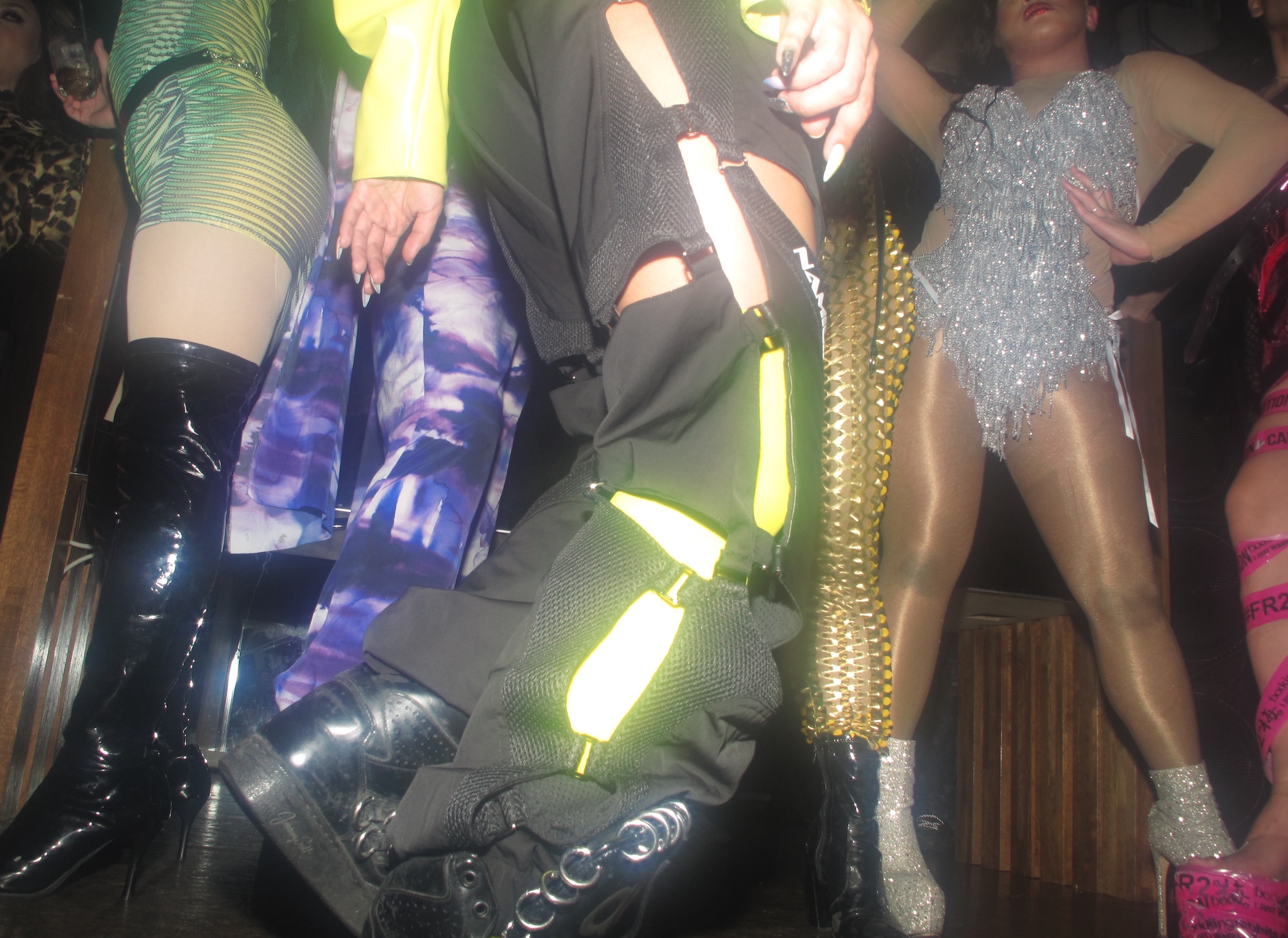
MOTORPOOL
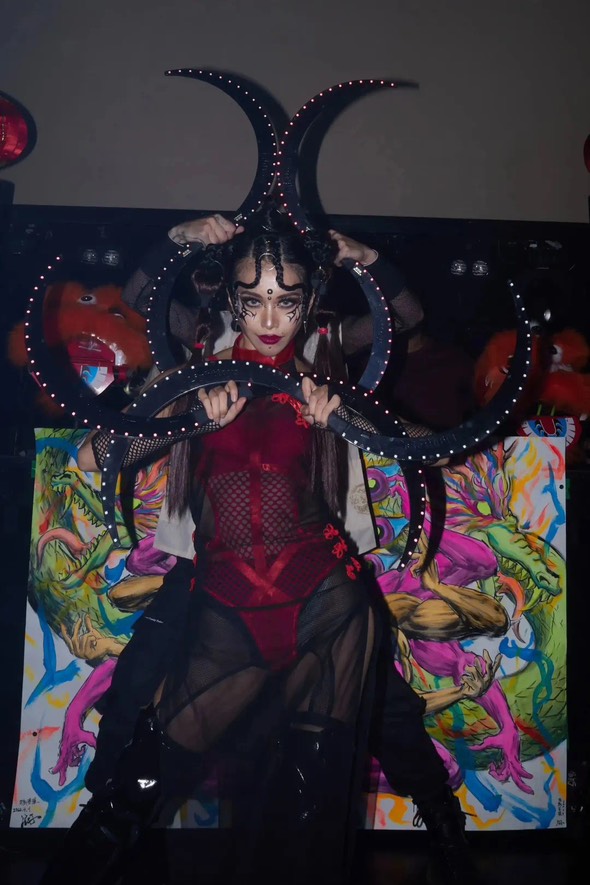
Denki Bodhisattva
―I really hope this continues regularly! Please share any ideas on how female DJs can thrive more in Japan and make it sustainable.
Kali:Sustainability? In Japan? Honestly, it’s very difficult at the moment. Let’s be real about the pay—female DJs around me are often getting paid around 15,000–25,000 yen per gig. When you factor in the cost of music, equipment, and staying fresh with new sets, it’s not easy to make a living. To be honest, the only way to make it sustainable is to perform outside of Japan, build a reputation there, and then hopefully see an increase in recognition and pay when you come back to Japan. If you can show me more than three or four female DJs in Japan who can live solely from DJing, I’d love to know who they are.
TEITEI:I make a living from DJing, but I can’t say I’m fully financially stable yet. So I’m looking for work.
MAYUDEPTH:I believe that if more women’s perspectives are involved in booking and event management in the future, it will create more opportunities for female performers and completely change the atmosphere of the scene. While the number of female performers has increased compared to before, I still feel that organizers need to consciously research and book them. Of course, those bookings should always be based on respect. Also, it’s not just about increasing the numbers; the next step is for women to take more ownership, including behind-the-scenes roles. This will contribute to the sustainability of the scene. Looking at the international scene, parties organized by women and FLINTA* are thriving, and exciting new talents are emerging. In the future, I believe female and queer organizers will play a key role.
―Do you have any advice for women who aspire to be DJs?
Kali:Learn music history and constantly research different genres. Go to live shows—not just techno, but all kinds of music. Visit places that inspire you, both in terms of sound and visuals. But above all, study, study, study. Perfect your technique, but don’t take it too seriously. Enjoy the process, even when you make mistakes, and always get back up and try again. Perfection isn’t the goal—individuality is what will make you stand out.
Sometimes, there’s too much judgment, especially from older, male figures in Japan. If you make a mistake, they tend to look down on you. But I think it’s normal to make mistakes, and it’s okay. You don’t have to be perfect. That’s my advice. I catch myself sometimes thinking about it, and I talk to my best friend, who is also a musician in Europe. I’ll be like, ‘Oh, maybe I made a mistake in my set here.’ And she’ll say, ‘Who cares? That’s normal. We’re human, not computers!’ Her words really helped me feel at ease. So, don’t worry about those distractions. Focus on the music you love.
MAYUDEPTH:I totally understand. For me, it’s not about the technical skills, but when I can feel the love and passion for music that the person has, that’s when I’m moved. Even if you have doubts about your DJing, it would be amazing if you can stay true to your own vision and not be swayed by the environment or information around you, and instead focus on developing the world that you love. Also, recently, I did a DJ lecture at ‘CLUB SKIN,’ organized by DJ Poipoi(https://www.instagram.com/dj_poipoi/) in Shinjuku Ni-chome, and many women came. I used to think that DJing wasn’t something I could really teach or learn, but I received so much good energy from it. I hope we can create more opportunities like that in the future.
TEITEI:You should do what you want to do. My friend said, ‘DJing is also about playing. The meaning of PLAY is to have fun. So, having fun is the most important thing.’ Let’s make sure we have fun and let’s do the podcast regularly!
photo Mikito Hyakuno(MOTORPOOL) (https://www.instagram.com/hyakunomikito/)
text Ryoko Kuwahara(https://www.instagram.com/rk_interact/)




